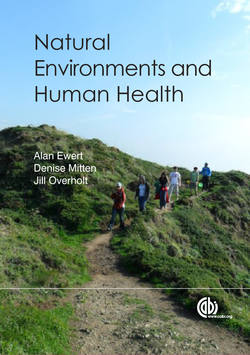Читать книгу Natural Environments and Human Health - Alan W Ewert - Страница 28
На сайте Литреса книга снята с продажи.
The Resultant Perception of Disconnection from Nature in Western Cultures: Where Are We Today?
ОглавлениеAs we can see from the first part of this chapter, for over 95% of the time that Homo sapiens has been on Earth humans have lived in direct interrelationship with the rest of the natural world and probably understood that they depended on nature (Oelschlaeger, 1991; Glendinning, 1995; Suzuki, 2007; Young et al., 2008). Early people may have been guided by Flinders’ (2002/2003) values-of-belonging, perceiving that everything in nature is connected. This perception of connectedness aligns with the WorldView of many past and present indigenous populations who follow the seasons, time activities to the blooming of certain flowers and the rising and setting of the sun, and eat foods that are grown, caught, or hunted locally. In the sacred cycles stage there literally was on-the-ground evidence illustrating a WorldView where humans considered themselves integral with nature and sharing the same life essence.
However, for some humans during the agricultural stage as they defined accumulation of material goods, including food, and the physical symbolic representations of their spiritual beliefs as wealth, they significantly changed their view of nature as ‘other’. During this major shift in their paradigm humans also started engaging in warfare. Fortunately, there was enough space that many cultures continued to live close to the earth guided by the values-of-belonging, and there is evidence that not everyone reacts with a scarcity consciousness that leads to war (see Box 2.2).
Over time the paradigm of competition and dominance was used by many people in the Western world and was starkly manifested when the Judeo-Christian religions preached nature as other and as beneath humans and god. Like a runaway train, this WorldView of superiority of humanity over nature continued during the industrial and technological revolutions. Nature became a commodity and over-indulgences a theme. Beginning with the Industrial Revolution at the end of the 18th century, people became the dominant force of change to the Earth’s systems. Meanwhile, under-consumption is a crisis for the billions of people around the world whose lives are oppressed by other peoples’ material consumption, which has another set of complex social, economic, and ecological impacts.
Swan (1992) suggests that the word dominant is inaccurate and believes that the disconnection from or superior feelings over nature is a result of fear. As humans lost the value-of-belonging (Flinders, 2002/2003) they experienced inner doubts and fears; they felt a lack of self-worth; they did not feel loveable and capable, which are the two ingredients necessary in order to sustain healthy relationships (Clarke, 1998). Roszak (1995) agrees that a deep despair underlies Western culture. Many humans seem lost, unaware of their indigenous roots, and unaware of being part of something larger. We are in a vicious cycle of consumerism as the foundation of our economics, and economics have degraded the global environment. As personal identity becomes further entangled with consumer behavior, it becomes harder to challenge existing patterns of consumption.
